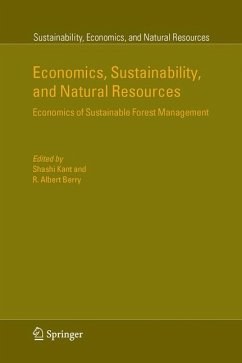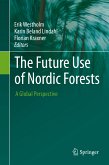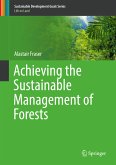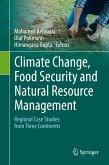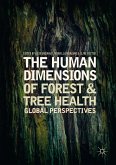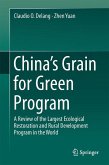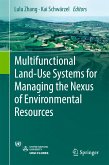Forest resources are an ideal starting point for economic analysis of sustainability. In this book, leading economists discuss key aspects of sustainability and sustainable forest management including complexity, ethical issues, consumer choice theory, intergenerational equity, non-convexities, and multiple equilibria. This systematic critique of neoclassical economic approaches is followed by a companion work, Institutions, Sustainability, and Natural Resources: Institutions for Sustainable Forest Management, Volume 2 in the series.
Dieser Download kann aus rechtlichen Gründen nur mit Rechnungsadresse in A, B, BG, CY, CZ, D, DK, EW, E, FIN, F, GR, HR, H, IRL, I, LT, L, LR, M, NL, PL, P, R, S, SLO, SK ausgeliefert werden.
From the reviews:
"This book is very different from other literature regarding 'sustainability'. ... consists of 12 chapters covering a variety of perspectives on 'sustainability' in forest management. ... an excellent effort in terms of providing a broader picture of economics and its applications to sustainability. ... I would suggest that all economists and other professionals and practitioners who believe that the dominant contemporary economic paradigm is too narrow should read this book." (Yaoqi Zhang, International Forestry Review, Vol. 8, December, 2006)
"This book is very different from other literature regarding 'sustainability'. ... consists of 12 chapters covering a variety of perspectives on 'sustainability' in forest management. ... an excellent effort in terms of providing a broader picture of economics and its applications to sustainability. ... I would suggest that all economists and other professionals and practitioners who believe that the dominant contemporary economic paradigm is too narrow should read this book." (Yaoqi Zhang, International Forestry Review, Vol. 8, December, 2006)

